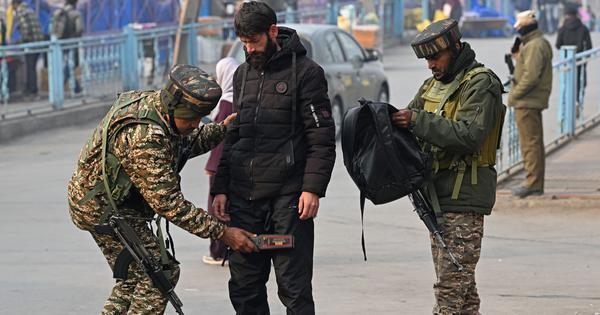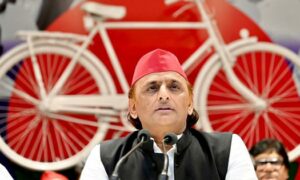
When the role of Kashmiri doctors in the car bomb blast in Delhi on November 10 began to emerge, alarm spread among Kashmiris.
Parents called up their children studying or working in other parts of the country, asking them not to talk about the incident, to stay low, to avoid attention. Some just demanded that they come back home as soon as possible.
There were good reasons for the panic. Since the 2019 Pulwama suicide bombing, Kashmiris have been faced an unsettling pattern. Every time a large-scale militant attack takes place either in the Valley or outside it, Kashmiris, busy in their lives in cities across India, prepare for the worst.
From public beatings to being thrown out of rented homes or facing attacks within the safety of hostels, Kashmiris find themselves at risk following a major incident of violence.
So common is this pattern that after the Pahalgam terror attack in April, the Jammu and Kashmir government had to dispatch its legislators to several states to ensure safety and security of Kashmiris.
Fortunately, the Red Fort incident has not led to widespread incidents of assault and harassment of Kashmiris across the country. That is probably because unlike in the Pahalgam massacre of 25 tourists, the security agencies had swiftly busted the module behind the Delhi blast.
Yet, something has changed after the Red Fort blast.
The man responsible for the explosion turned out to be a doctor from South Kashmir’s Pulwama district, Dr Umar Nabi. In addition, two other doctors have been arrested by Jammu and Kashmir Police, accused of being members of a terror module linked to the banned terrorist organisation, Jaish-e-Mohammad.
The fact that highly-educated doctors were involved in a sinister plot to carry out bomb blasts is not the only thing that is disturbing. It has turned the lens of suspicion on all educated Kashmiris who have a career in the mainland or aspire to one. A student organisation in Jammu and Kashmir has already alleged that thousands of Kashmiri students studying in various parts of the country are being profiled and under suspicion.
There have been reports of Kashmiris being surveilled and even questioned by security agencies across India. While it is understandable that security agencies have to investigate, almost every Kashmiri finds himself a suspect.
Even Jammu and Kashmir Chief Minister Omar Abdullah was moved to comment on the mass profiling of Kashmiris. “In the prevailing circumstances, parents would not like to send their children outside,” Abdullah said at an event in South Kashmir. “When we are looked at with suspicious eyes from every side, when attempts are made to defame us for someone else’s doing, when attempts are made to bring everyone into the ambit of what few people have done, then it is obvious that it becomes difficult for us to leave for outside.”
For Kashmiri Muslims, it is fairly common to be refused accommodation in major Indian cities and be forced to live in a “Muslim area”. However, working professionals such as doctors, engineers and those with white-collar corporate jobs could find entry into urban elite spaces of their choice.
Many feel that may not be the case anymore.
Take the case of a handsomely-paid Kashmiri professional in Delhi who has been living in Delhi for several years. Last week, she began looking for a place to rent. “[Real-estate] brokers have been really helpful but whenever I turn up to see a flat and say that I am a Kashmiri Muslim, the landlords ask them to look for someone else,” she said. “It’s frustrating.”
As the involvement of a few professionals in a terror conspiracy builds into a wave of suspicion, Kashmiris are also afraid recruiters may pass them by, irrespective of their skills, strengths and talent.
On the streets of Kashmir, those trying to make a life outside the Valley are expressing their worst fears. “Saoruiy mokleov.” Everything is finished.
Here is a summary of last week’s top stories.
A U-turn by the judiciary? The Supreme Court ruled that courts cannot impose timelines on the president or governors for granting assent to bills. The court held that declaring “deemed assent” for bills pending beyond prescribed periods contradicted the Constitution and violated the separation of powers that it provides for.
It said such a decision would amount to the judiciary assuming the governor’s role. However, the court noted that it may order a governor to decide within a specific period if delays “frustrate the legislative process”.
The court was answering a reference made in May by President Droupadi Murmu regarding the Supreme Court’s April judgement that had set such timelines. That earlier verdict held that governors must decide on bills within a reasonable time under Article 200, and that the president must act within three months under Article 201, with any delay explained to the state government.
Murmu had sought the court’s opinion on whether the actions of governors and the president could be subject to judicial scrutiny. A bench led by Chief Justice BR Gavai heard the matter and reserved its judgement in September.
Ratna Singh explains why the Supreme Court removed its own deadline meant to prevent governors sitting on bills.
A death sentence. Bangladesh’s International Crimes Tribunal sentenced former Prime Minister Sheikh Hasina to death after finding her guilty of crimes against humanity for the crackdown on the protests against her government in 2024. The tribunal, in its verdict, said that the attacks were “directed against the civilian population” and were “widespread and systematic”.
Hasina, however, described the tribunal as biased and politically motivated, and denied having ordered firing on protesters.
The verdict was the first in a series of four cases related to crimes allegedly committed during her government’s response to the several weeks of widespread student-led protests against the Awami League government in July and August 2024.
Hasina had fled to India amid the protests. She had been in power for 16 years.
Also read: Pressure on India to extradite Hasina is likely to grow
Press freedom. Jammu and Kashmir’s State Investigation Agency raided the Jammu office of the newspaper Kashmir Times, alleging that the organisation was engaged in activities “inimical to the state”. Editors Prabodh Jamwal and Anuradha Bhasin rejected the accusations as “baseless” and said the “coordinated crackdown” was another attempt to silence the news outlet.
The raids followed a first information report accusing the newspaper of anti-national activity and attempts to spread disaffection against the country.
In a statement, the editors said that criticising the government was not the same as being inimical to the state and argued that a questioning press was vital to democracy. The added the allegations were meant to “intimidate, to delegitimise and ultimately to silence” the organisation.
“Journalism is not a crime,” they added. “Accountability is not treason.”
Also on Scroll last week
Follow the Scroll channel on WhatsApp for a curated selection of the news that matters throughout the day, and a round-up of major developments in India and around the world every evening. What you won’t get: spam.
And, if you haven’t already, sign up for our Daily Brief newsletter.
📰 Crime Today News is proudly sponsored by DRYFRUIT & CO – A Brand by eFabby Global LLC
Design & Developed by Yes Mom Hosting






